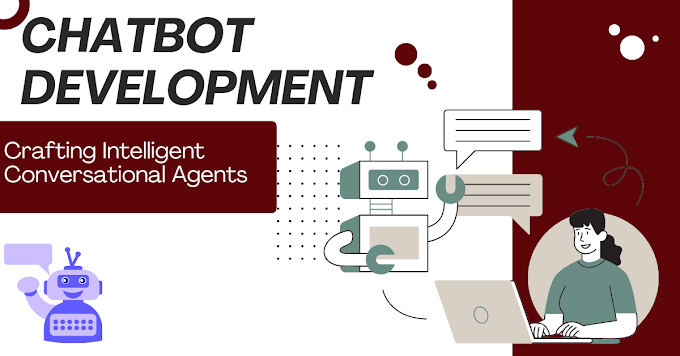Ethics in AI Development: Navigating the Complex Landscape
Ethics in AI Development: Navigating the Complex Landscape
Artificial Intelligence (AI) has emerged as a transformative pressure, shaping various factors of our lives. As AI technology develop, the ethical considerations surrounding their development and deployment turn out to be an increasing number of critical. In this complete manual, we will delve into the problematic global of ethics in AI development, exploring the important thing concepts, demanding situations, and the evolving landscape of responsible AI.
Understanding AI Ethics
Defining AI Ethics:
AI ethics entails the observe and application of ethical principles in the realm of artificial intelligence. It seeks to ensure that AI structures are evolved and deployed in a manner that aligns with societal values, respects human rights, and minimizes damage.
Significance of Ethics in AI:
As AI technologies grow to be more included into our day by day lives, addressing moral concerns turns into imperative. From bias in algorithms to the capability for task displacement, ethical issues play a pivotal position in shaping the impact of AI on people and society.
Key Ethical Considerations in AI Development
1. Fairness and Bias:
Ensuring fairness in AI structures involves preventing biases that may bring about discriminatory outcomes. Developers have to address biases in education statistics and algorithms to keep away from perpetuating current inequalities.
2. Transparency:
Transparent AI structures allow customers to understand how selections are made. Striving for transparency in AI improvement promotes responsibility and allows construct trust among users and AI structures.
Three. Accountability and Responsibility:
Defining accountability in AI improvement involves organising responsibility for the moves and selections of AI structures. Developers, businesses, and policymakers proportion the obligation of ensuring AI operates ethically.
4. Privacy:
AI often includes processing big amounts of private information. Ethical AI improvement requires a dedication to safeguarding consumer privateness, implementing robust facts protection measures, and obtaining informed consent.
5. Security:
Ensuring the security of AI structures is critical to save you malicious use and guard in opposition to ability vulnerabilities. Ethical AI builders prioritize security features to prevent unauthorized get right of entry to and manipulation.
Impact on Society
1. Job Displacement:
One of the moral dilemmas in AI improvement is the capability impact on employment. As automation and AI technology evolve, certain jobs may additionally turn out to be out of date, requiring a thoughtful method to deal with capacity job displacement.
2. Social Equality:
AI systems ought to be designed to keep away from exacerbating existing social inequalities. Ensuring same access and blessings from AI technologies contribute to a more inclusive and equitable society.
3. Bias and Discrimination:
The presence of bias in AI algorithms can cause discriminatory consequences. Developers need to actively cope with bias in education facts and algorithms to prevent discrimination based totally on race, gender, or other protected characteristics.
4. Accessibility:
Ethical AI development includes considerations for making AI technology on hand to numerous populations. This includes designing interfaces and applications which are person-pleasant and accommodating to individuals with various skills.
Regulatory Landscape: Navigating the Frameworks
As the moral implications of AI gain prominence, numerous nations and agencies are developing regulatory frameworks to control AI development and deployment. These frameworks goal to provide suggestions for moral AI practices, balancing innovation with accountable use.
1. GDPR (General Data Protection Regulation):
The GDPR in Europe establishes regulations for the processing of personal statistics, which include AI packages. It emphasizes the significance of transparency, consent, and data safety in AI structures.
2. Ethical AI Principles:
Several agencies and enterprise organizations have developed ethical AI standards to manual builders and agencies. These standards often consist of commitments to equity, transparency, responsibility, and societal benefit.
Three. National AI Strategies:
Countries global are formulating national techniques for AI improvement. These techniques frequently include moral considerations, emphasizing the responsible use of AI technologies to benefit society.
Challenges in Ethical AI Development
1. Lack of Standardization:
The absence of usual moral requirements poses a mission for AI developers. The range of ethical issues throughout cultures and areas calls for a nuanced approach to ethical AI development.
2. Explainability and Interpretability:
Many AI fashions function as "black bins," making it difficult to recognize how they attain specific decisions. Improving the explainability and interpretability of AI systems is a vital ethical consideration.
Three. Ethical Decision-Making via AI:
As AI systems become extra autonomous, the want for moral decision-making within AI algorithms becomes obvious. Developers face challenges in programming AI systems to make moral choices in complicated situations.
Four. Unintended Consequences:
Ethical AI improvement entails waiting for and mitigating unintentional consequences. Developers have to don't forget the wider effect of AI structures on people, groups, and society as a whole.
The Path Forward: Striking a Balance
Ethical AI development requires a holistic method that considers the societal impact, individual rights, and the capability effects of AI technologies. Striking a stability among innovation and ethical issues involves the subsequent key ideas:
1. Ethical by Design:
Integrating ethics into the layout phase of AI improvement guarantees that moral concerns are fundamental to the generation from the outset.
2. Collaboration and Stakeholder Engagement:
Collaboration between developers, policymakers, ethicists, and different stakeholders is critical for growing comprehensive and powerful moral frameworks.
3. Continuous Monitoring and Evaluation:
Regular monitoring and evaluation of AI systems help perceive and cope with ethical troubles that could arise in the course of their lifecycle.
4. Transparency and Communication:
Maintaining obvious communication with users and the public approximately how AI systems perform fosters believe and responsibility.
5. Education and Awareness:
Promoting consciousness and training on AI ethics ensures that builders, businesses, and the public are properly-informed about the moral implications of AI technologies.
Conclusion: Shaping a Responsible AI Future
Ethics in AI improvement is a dynamic and evolving discipline, requiring ongoing speak, collaboration, and adaptation to cope with emerging demanding situations. By embracing moral concepts, builders contribute to the responsible and sustainable development of AI technologies. As we navigate the complex panorama of AI ethics, it's far vital to prioritize values that align with the betterment of people, groups, and society at massive. The direction to ethical AI improvement is not without its challenges, but with a dedication to responsible practices, we will form a destiny where AI advantages humanity ethically and equitably.
FAQ
1. What is the significance of ethics in AI improvement?
Ethics in AI development is important to make certain responsible and fair use of artificial intelligence. It includes addressing ethical implications, potential biases, and societal affects to construct AI systems that align with human values and contribute positively to society.
2. How can AI builders mitigate biases of their algorithms?
AI developers can mitigate biases by using being aware of the information used to educate fashions, using numerous and representative datasets, frequently auditing and trying out for biases, and enforcing equity-aware algorithms. Additionally, ongoing tracking and remarks loops are essential to identify and rectify biases which could emerge over time.
3. What are the moral concerns while implementing AI in sensitive areas, together with healthcare or crook justice?
In touchy areas like healthcare or crook justice, ethical issues in AI improvement contain safeguarding privacy, making sure transparency in decision-making strategies, and avoiding reinforcement of present societal biases. Stakeholder engagement, interdisciplinary collaboration, and adherence to established moral suggestions are vital for accountable AI deployment in such domains.
4. How can transparency be achieved in AI systems?
Transparency in AI structures involves providing clear causes of the way algorithms make selections. This may be achieved thru interpretable fashions, disclosure of statistics resources, and open conversation approximately the restrictions and uncertainties associated with AI programs. Transparent AI fosters person trust and accountability inside the improvement and deployment of AI technologies.
5. What function do regulatory frameworks play in making sure ethical AI development?
Regulatory frameworks play a essential role in organising standards and recommendations for moral AI development. These frameworks assist set expectancies for accountable AI practices, deal with capability risks, and maintain developers responsible. Collaborative efforts among governments, industry, and academia are critical to create and put into effect rules that sell moral AI development globally.








